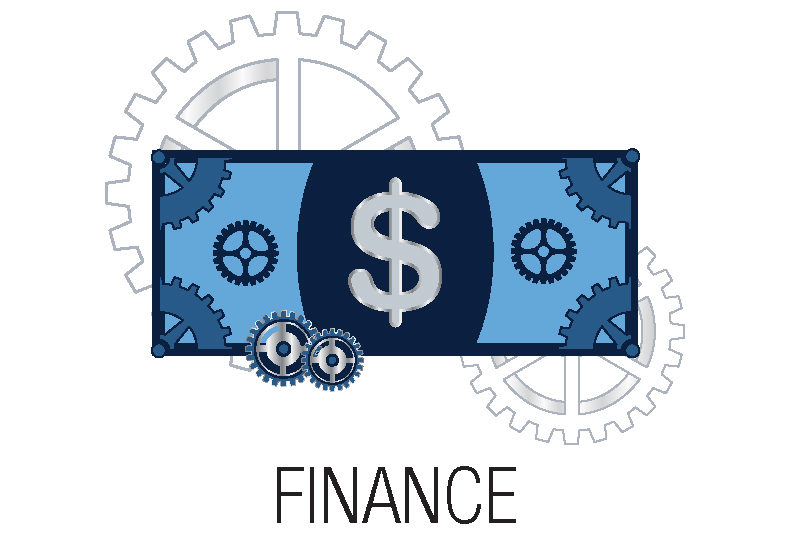
Home » New year might not be as good for finance sector
New year might not be as good for finance sector
Interest rates, trade issues described as contributing factors

December 19, 2019
.jpg) Financial experts here say that growth began to flatten in 2019, and they expect further slowing -- though not necessarily a recession -- in 2020.
Financial experts here say that growth began to flatten in 2019, and they expect further slowing -- though not necessarily a recession -- in 2020.
Tim Vorpahl, president and founder of Spokane-based Vorpahl Wing Securities Inc., says 2019 was a phenomenal year for the stock market.
“It’s been a great year for the clients; some of them are up 30% to 40%, depending on what they’re holding,” Vorpahl says. “Even the more conservative investments are up 10%-15%.”
A stable economy and the lingering effects of the 2017 Tax Cuts and Jobs Act contributed to market growth, he says.
Next year, however, isn’t looking quite so rosy.
“We’re definitely seeing signs of the economy slowing down,” Vorpahl says. “It’s still strong and still good, but things are definitely slowing.”
Steve Scranton, chief investment officer and economist at Spokane-based Washington Trust Bank, concurs with Vorpahl’s assessment.
“We may still be at risk of a recession by the end of next year, depending on how different things play out, but as it stands right now, it’s simply slowing. It’s not on the verge of a recession,” Scranton says.
The economy saw some slowing in 2019, Scranton says. He blames part of that on trade disputes between the U.S. and China and says 2020 could bring the pain of tariffs to consumers.
“Consumers really haven’t seen the higher cost of the tariffs being passed onto them because most of the tariffs right now are on raw materials and intermediate goods, and a lot of businesses just eat that through lower profit margins rather than passing it on to the consumer,” Scranton says.
Additional tariffs would likely further impede economic growth, he says. A new round of tariffs was scheduled to go into effect last week. Scranton says those tariffs would focus on finished products, meaning businesses would pass additional costs on to the consumer.
Scranton says an escalation in trade disputes would be detrimental to businesses in the state. In 2017, more than 18% of Washington state’s gross domestic product was tied to exports, according to a report by Washington, D.C.-based nonprofit Business Roundtable.
However, Scranton says that GDP growth has been stronger in the Pacific Northwest than for the U.S. as a whole by about 1%.
Additionally, Scranton says commercial loan demand remains steady.
“Businesses wouldn’t be borrowing if they were seeing evidence that the economy was slipping into a recession,” he says.
The Federal Reserve’s decision to cut interest rates three times this year meant narrower profit margins for banks, Scranton contends.
For consumers, however, market president of Greater Spokane Commercial Banking for Wells Fargo Don Stafford says the rate cuts have been a boon. Customers who postponed projects in 2018 due to then-rising interest rates have returned to banks to discuss launching those projects now that interest rates are lower.
“If (the Federal Reserve) does in fact cut rates further in 2020, I don’t know that you’re going to see robust growth, but it’ll keep that growth trajectory that we’ve had throughout 2019 and into 2020,” Stafford says.
Greg Hansen, senior vice president of services and dealer services at Spokane Valley-based Numerica Credit Union, says in addition to interest rate cuts, credit unions and banks faced a flat yield curve in 2019.
“I’m sure for every financial institution, that caused some margin compression, which put stress on earnings and capital,” Hansen says.
Ezra Eckhardt, president and CEO of Liberty Lake-based Spokane Teachers Credit Union, says 2019 saw steady growth for loans and deposits for the credit union. He says he expects to see similar circumstances in 2020.
“The industry as a whole is probably going to perform about the same, in that the smallest 20% of credit unions in the country are generally shrinking, and the largest 20% are growing at a rate of about 10% each, annually,” Eckhardt says.
Latest News Banking & Finance
Related Articles
Related Products



